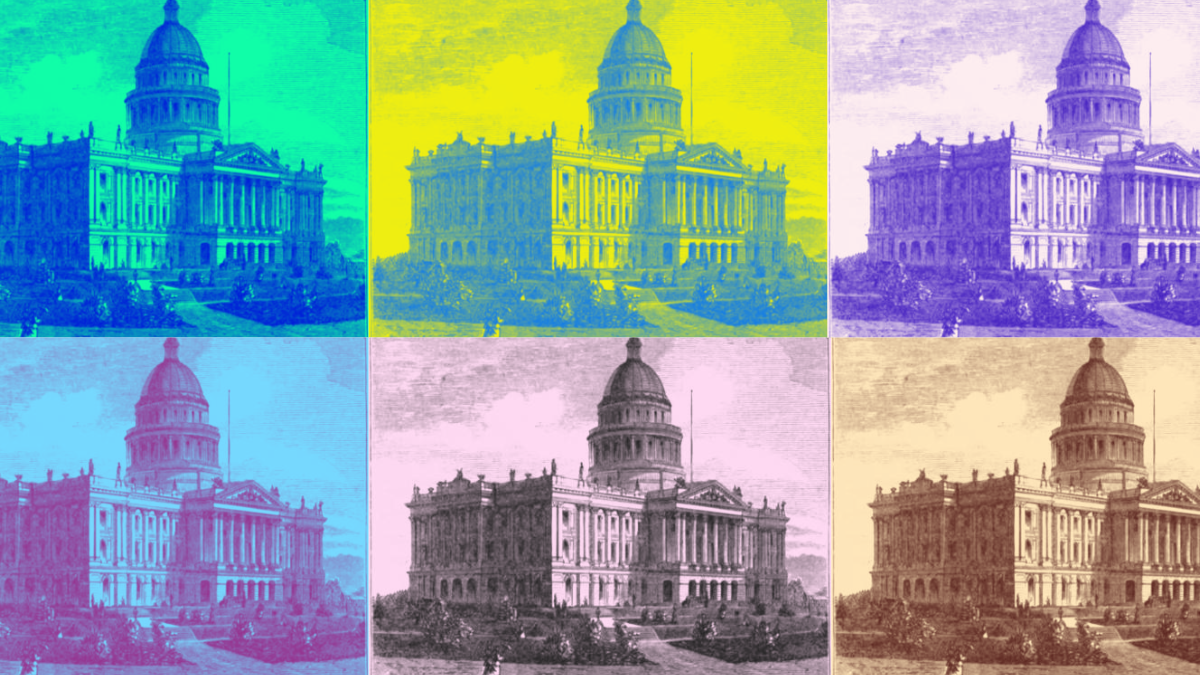Tracking California’s Proposed AI Legislation
Alan Kyle / Sep 3, 2024This tracker, first published July 22, was last updated on Tuesday, September 3.

Illustration of the California State Capitol building in Sacramento.
California is in the process of enacting new AI regulations that will affect millions of people both within and outside the state. This bill tracker offers a resource for those interested in understanding the status of the laws.
The tracker is an Airtable base containing the 30 AI bills that entered the legislative process, and includes tags and categories that can be filtered and grouped. The status of each bill was updated as of Tuesday, September 3.
This month, California Governor Newsom is about to decide the fate of 19 new AI regulations that passed the state legislature last week. With the legislative session now closed, the governor will have until the end of the month to sign, veto, or permit these bills to become law without his signature.
The bills are organized into the spreadsheet below, where they will continue to be updated as the governor decides.
Noteworthy observations:
- Two thirds of proposed AI bills were passed by the legislature. Out of 30 bills introduced, 20 of them successfully passed both houses, including one that has already been signed into law.
- SB 1047 (Wiener), passed: This much-debated bill would implement sweeping restrictions, reporting, and compliance requirements for large AI developers, among other things. Perspectives on this bill published on Tech Policy Press before it passed the legislature can be read here and here.
- AB 3211 (Wicks), did not pass: It would have established watermarking and content provenance requirements for generative AI system providers, manufacturers of digital cameras and other recording devices, and large online platforms. The bill enjoyed unanimous approval in the Assembly, but that changed when it reached the Senate. A bill with similar intent, SB 942, did pass. A critical analysis of it can be found here.
- All three bills related to elections passed:
- AB 2355 (Wendy Carillo, Cervantes): Would require any political advertisement, as specified, that is published or distributed by a political committee, to include a disclaimer if content in the ad was generated or substantially altered using AI.
- AB 2655 (Berman, Pellerin): Introduces liability for "large online platforms" that fail to block or label materially deceptive election content within 72 hours of receiving a report by any California resident. Platforms would also be required to respond to reporters within 36 hours. This would likely cause platforms to over remove lots of legal speech in order to avoid liability. First Amendment questions abound.
- AB 2839 (Pellerin, Berman): Would "prohibit a person, committee, or other entity from knowingly distributing an advertisement or other election communication, as defined, that contains certain materially deceptive content, as defined, with malice, as defined, subject to specified exemptions" within a certain time period surrounding an election. The bill passed with an urgency clause, making it effective immediately upon enactment and would allow recipients of the deceptive content to file a civil action and seek damages. The First Amendment Coalition has expressed concerns that the increase in liability for political speech may encounter constitutional problems and that it would "flood the courts with complex litigation initiated by persons with no personal stake in the matter."
August 27 Update:
On Thursday, August 15, a significant set of Appropriations Committee hearings resulted in six bills being presumed dead after failing to pass.
They are:
- AB 1791: Would have prevented the removal of provenance information by social media companies.
- AB 1814: Sought to regulate facial recognition systems used by law enforcement.
- AB 1856: Aimed to criminalize the distribution of nonconsensual sexual deepfakes.
- AB 2877: Proposed to prevent training on personal information of individuals under 16 years old.
- SB 893: Planned to establish the California Artificial Intelligence Research Hub to facilitate collaboration between government, academia, and industry.
- SB 933: Intended to add generative AI images to statutes criminalizing Child Sexual Abuse Material (CSAM). (Note: A similar bill, AB 1831, is still in consideration.)
The bills that have passed and await governor action include:
- AB 2876: This bill, passed last Tuesday, calls for the consideration of media and AI literacy in the school curriculum.
- AB 2905: This bill, also passed last Tuesday, mandates that calls with pre-recorded AI messages must notify receivers that the messages are AI-generated.
On Monday, three bills unanimously passed a Floor vote and are now on concurrence, meaning they’ve gone back to their house of origin for a final vote now that they’ve been amended:
- AB 2013: Requires AI developers to share information about training data.
- SB 896: Requires the California Department of Technology and Office of Emergency Services to produce reports on generative AI usage. Requires notices for certain state uses of generative AI.
- SB 1288: Convenes a working group to evaluate AI-enabled teaching and learning practices.
17 other bills will also go to concurrence, should they pass their respective second chambers.
One bill, AB 2370, was signed by the governor in early July, and is a measure to prevent community college instructors from being replaced by AI.
SB 1047, known as the Safe and Secure Innovation for Frontier Artificial Intelligence Models Act, is particularly contested (read perspectives on this bill, which would introduce new regulatory requirements and liability on foundation model developers, here and here).
Initial Insights (as of July 22, 2024):
- Voting Trends: To date, about half of the bills have yet to receive a single “No Vote” in a committee or floor session.
- Privacy Focus: Privacy is a big theme, with nine bills receiving the "Privacy" tag.
- Key Lawmakers: Assemblymember Rebecca Bauer-Kahan (D-CA16) leads with four bills introduced, and Senator Josh Becker (D-CA13) with three.
- Senate vs. Assembly: There are 11 Senate bills and 19 Assembly bills, proportional to the size of each house.
- The First AI Law: The first law this legislative cycle, AB 2370, was signed by Governor Gavin Newsom, a Democrat, on July 2, 2024.
Authors
